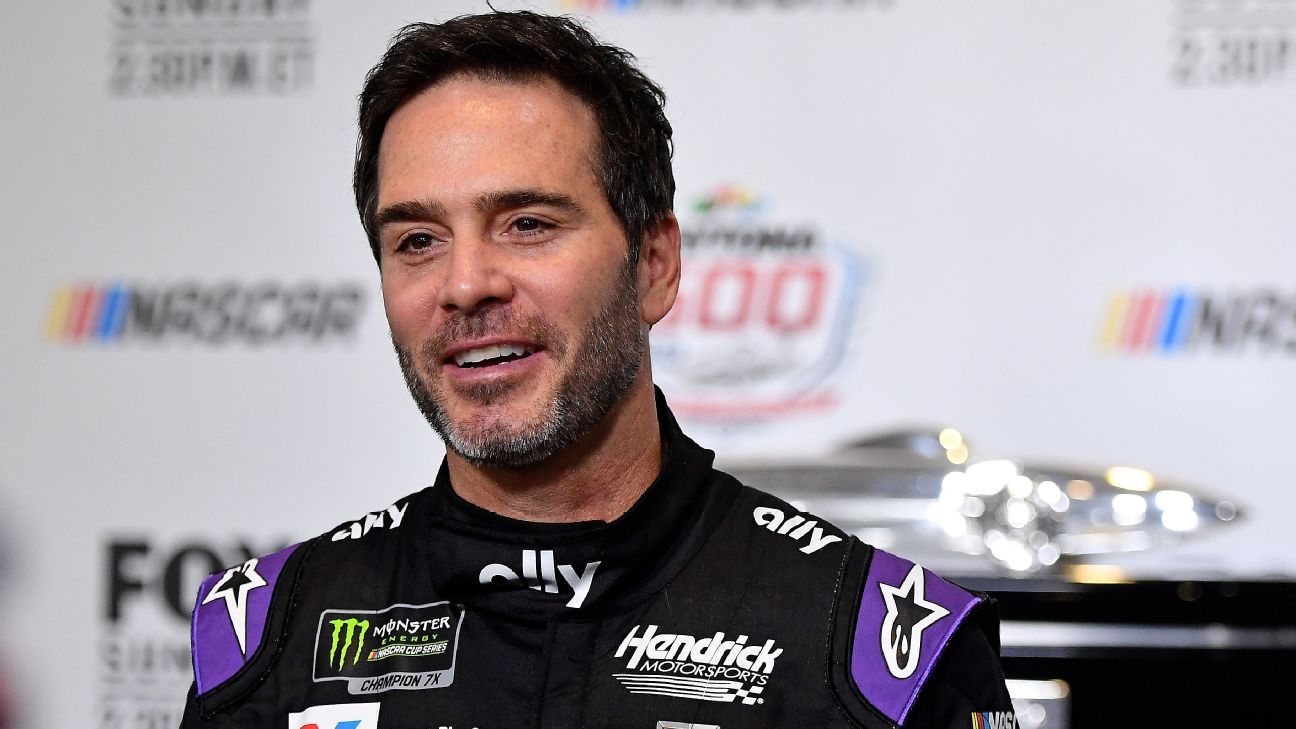NASCAR’s biggest name addressed on Friday his feelings, failings and ongoing education on George Floyd and the protests that have taken place around the world in the days since Floyd’s death on May 25.
Jimmie Johnson spoke with the motorsports media via conference call. The seven-time Cup Series champion confessed that perhaps he hadn’t been vocal enough to this point, but that he was working to change that.
“I want to have a voice, and I do want to stand up for injustices. So, I’ve been trying to find my voice, and I think part of that journey is to educate myself. And then I’ve been very deep in that and trying to learn and educate. I’ve been on the phone with friends of mine like (NASCAR driver) Bubba Wallace, other friends of color and race that I’ve known through the years; and just checking in, trying to understand, and asking them deeper questions that haven’t come up in our relationship so far.
“And to learn and understand just how far and wide and how frequent that my friends have dealt with issues, that’s helping me find my voice and have clarity in this situation, in all the noise that’s out there. “It’s obviously a very divisive topic, and I know there’s a lot going on in the media. So, I’ve found, in my opinion, the best route is to talk to my friends of color and understand their perspective, to help me understand my perspective and find my voice, ultimately.”
It was Wallace, the only full-time black driver across NASCAR’s three national series, who called out his fellow competitors earlier this week, saying on Dale Earnhardt Jr.‘s “Dale Jr Download” podcast: “I said a few drivers — a very few — have given their opinion on the day’s matter and I appreciate that. But the silence from the top drivers in our sport is beyond frustrating. All of our drivers — our sport has always had somewhat of a racist label to it. NASCAR, everybody thinks redneck, Confederate flag, racists. And I hate it. I hate that because I know NASCAR is so much more. I said do you all not care about what’s going on in the world? That’s not the right way to go about it. Our voices carry so much more weight than Joe Schmo from down the street. I mentioned we’ve got to do better. We’ve got to step up for everybody to say what they feel.”
Johnson first addressed the George Floyd protests following his third-place finish at Bristol Motor Speedway on Sunday, May 31, saying, “I’ve watched it all. The circumstances are just crazy and unacceptable. I am for protesting, peaceful protesting. I hope there’s more of that tonight. I know there are concerns, especially in the Charlotte area, near my home, that they will be protesting tonight. The message needs to be clear, but I think being peaceful is really the right way to send the message here. I hope everybody stays safe.”
The following morning, he tweeted: “It hurts to see our country being torn apart by racism & hate. I can’t pretend to understand what black men & women have experienced but I can speak out & condemn racial inequality. I hope love for all mankind can prevail & make changes to build a better future for our children” along with a quote from Dr. Martin Luther King Jr.: “Darkness cannot drive out darkness; only light can do that. Hate cannot drive out hate; only love can do that.”
Then he says he talked to Wallace on the phone. Wallace has already said publicly that the conversation with Johnson had “an impact” on him. Johnson says the feeling was mutual, especially when Wallace told him the story of Sean Gillispie, Wallace’s 19-year old cousin who was controversially killed by a Knoxville Police officer in 2003, when that officer believed the teen was reaching for a gun. There was a firearm in the backseat of the car, but Gillispie was holding a phone when he was shot.
“I just called to check in with (Wallace). I just wanted to know how he was doing,” Johnson said of the conversation. “In that phone call, I learned a lot about him and his family – the things that they’ve been through, his cousin that was killed when he was young…and I just had no idea. I had no idea the challenges that he’s been faced with. So, it’s part of that listening stuff that I mentioned earlier. I have many friends of color in racing, and just checking in with them and understanding. And I’m just curious, ‘How are you? How has this been impacting you?’ And that’s been a great learning point for me during these times.”
Johnson also addressed the wider criticism of professional athletes, but particularly racers, for not speaking out as much they should for fear of upsetting corporate sponsors, fans, or social media followers.
“It’s a sensitive topic, but I think you’ve gotta follow your heart and post what you believe in,” Johnson said. “It’s hard to live your life worrying about other people; you’ve gotta let passions in your life shine through on things that you believe in. You need to follow that. And for me, ultimately, I’ve felt a need to have a voice in this, and I’m still trying to find that voice. So, I’m being pulled this way more than I have at other times, and there’s just something inside me that makes me feel like I need to do it.”
